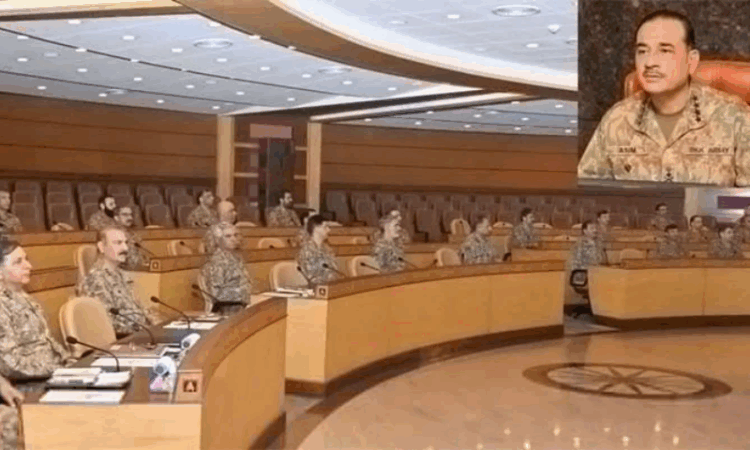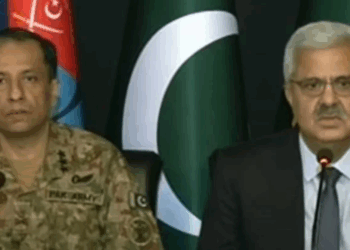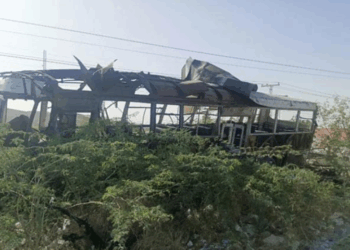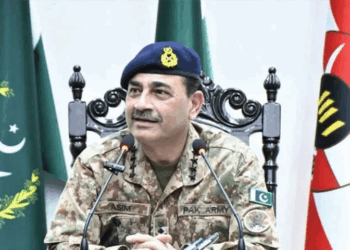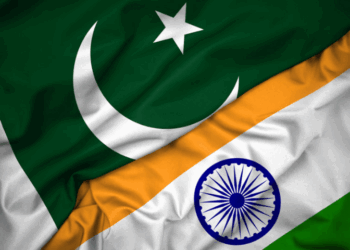Rawalpindi, May 22, 2025: The 270th Corps Commanders’ Conference (CCC) convened today at the General Headquarters (GHQ) in Rawalpindi, chaired by Field Marshal Syed Asim Munir, NI (M), Chief of Army Staff (COAS). This marked the first CCC under Field Marshal Munir’s leadership following his historic elevation, symbolizing a significant milestone in Pakistan’s military trajectory.
The session commenced with a solemn prayer (Fateha) for the martyrs of Operation Bunyan al Marsoos and the victims of the recent terrorist attack in Khuzdar, Balochistan, which tragically claimed the lives of four children and two adults. The Forum strongly condemned the attack, attributing it to India-sponsored proxies, and described the deliberate targeting of civilians—especially children—as a grave violation of international laws and humanitarian principles.
The commanders paid tribute to the martyrs of the recent conflict, referred to as Marka-e-Haq, commending their ultimate sacrifice in defending the nation. “The sacred blood of our Shuhada will never go in vain,” the Forum affirmed, as the leadership reiterated its resolve to safeguard national security and the well-being of the people of Pakistan.
Senior military leaders congratulated Field Marshal Munir on his elevation, acknowledging his strategic acumen and steadfast leadership that steered the armed forces through one of the most critical junctures in recent history.
The conference undertook a comprehensive review of Pakistan’s internal and external security environment, with particular focus on the successful execution of Operation Bunyan al Marsoos. The Forum praised the coordination, professionalism, and determination displayed by the Armed Forces in neutralizing a serious threat, calling it a reflection of Pakistan’s resilient defence apparatus and unified national spirit.
In light of emerging threats from hybrid warfare, the Forum recognized the vital role of media professionals, information defenders, and Pakistan’s youth in countering misinformation and maintaining public morale during the recent India-Pakistan conflict. Commanders emphasized the growing importance of strategic communication and appreciated civil society’s efforts in amplifying Pakistan’s narrative globally.
The Forum also discussed India’s alleged post-conflict shift towards intensified proxy warfare, particularly in Balochistan and Khyber Pakhtunkhwa. It noted New Delhi’s increasing reliance on non-state actors following battlefield setbacks—a tactic Pakistan’s military leadership deemed reckless and unacceptable.
“The peace of our nation cannot be held hostage to externally sponsored terrorism,” the Forum resolved, pledging to confront all hostile proxies and their enablers with the full might of the state. A multi-tiered response involving intelligence, law enforcement, and military coordination was endorsed.
On the regional front, the commanders reviewed the situation along the Line of Control (LoC), Working Boundary, and the Eastern Border. The Forum strongly condemned ongoing human rights violations in Indian Illegally Occupied Jammu and Kashmir (IIOJK), urging the international community to take urgent notice and prevent further escalation in South Asia.
Pakistan’s unwavering political, diplomatic, and moral support for the Kashmiri cause was reiterated. “We stand firmly with our Kashmiri brothers and sisters in their just struggle for self-determination,” the official statement read.
In his concluding remarks, Field Marshal Munir praised the high morale and operational preparedness of the armed forces. He expressed profound gratitude for the trust and support of the Pakistani people. “Our greatest strength lies in our people. We remain resolute in defending them from all forms of aggression and extremism,” he stated.
The Conference concluded with a strong reaffirmation of Pakistan’s national resolve: no threat—covert or overt—will undermine the country’s sovereignty, peace, or integrity.


